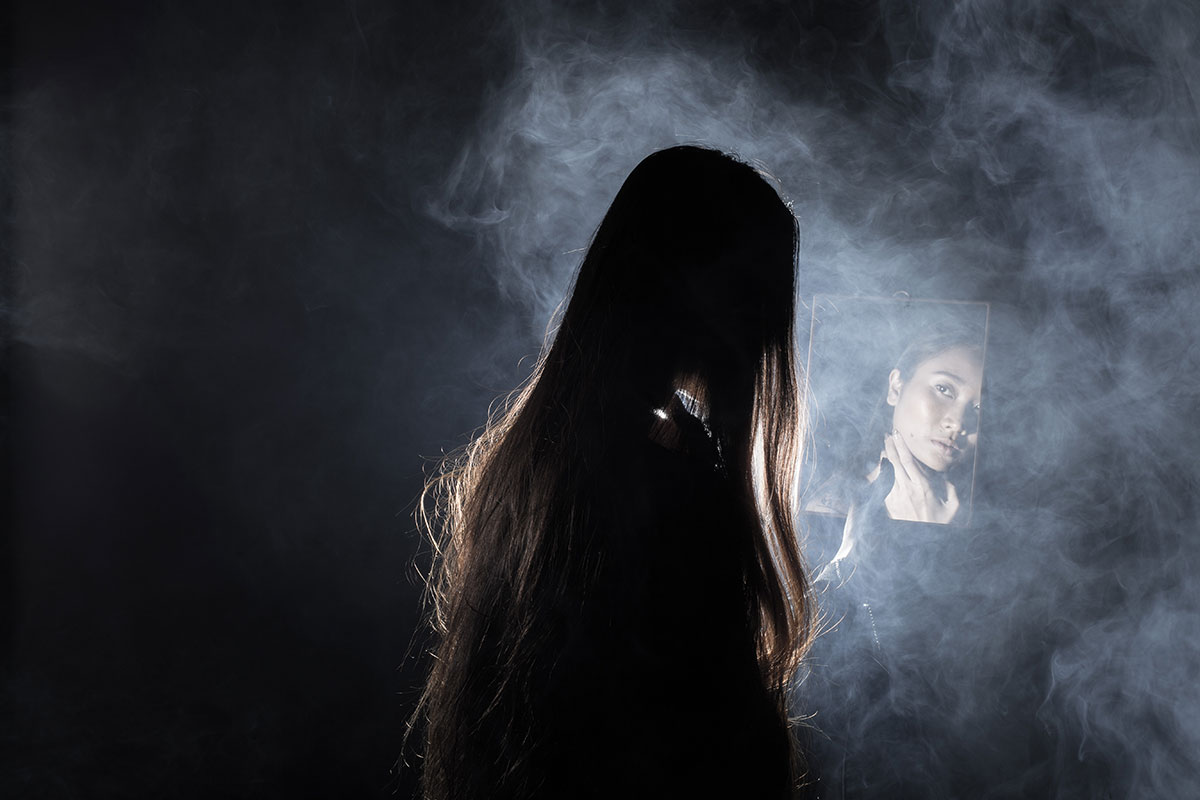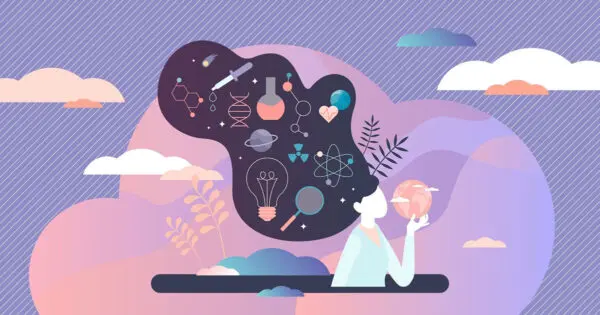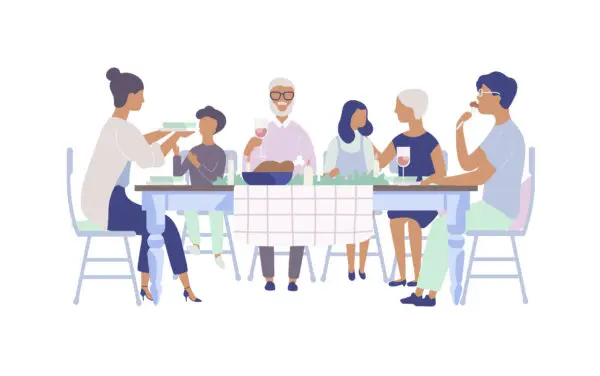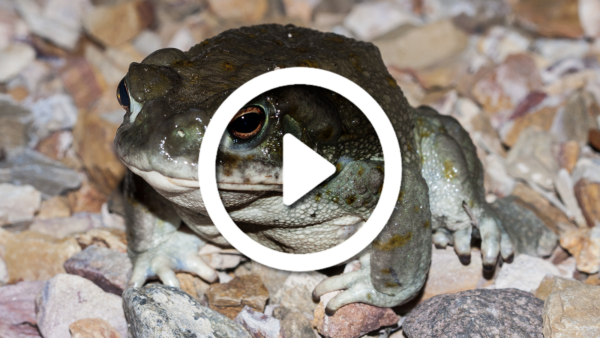Medical Editor: Dr. Benjamin Malcolm, PharmD, MPH, BCPP
What is Ibogaine?
Ibogaine is a psychoactive indole alkaloid found in several species of plants. The most well-known is Tabernanthe iboga, a slow-growing perennial shrub from West Africa. Tabernanthe iboga, commonly called Iboga, is only native to three nations. It is most abundant in Gabon, but also in parts of the Democratic Republic of the Congo (DRC) and Cameroon. The compound is also naturally occurring in several other plants, including voacanga Africana, and Tabernaemontana undulata.
Ibogaine is increasingly gaining attention for the medicine’s potential to eliminate opioid withdrawals in persons physically dependent on opioids. This phenomenon was unintentionally discovered in the 1960s. Since then ibogaine has continued to be used in the treatment of opioid addiction. Ibogaine may also have potential to treat diseases of the nervous system, such as Parkinson’s disease, but until clinical trials are fully permitted, the full healing potential of ibogaine is unknown and unverified.
There are serious and unique risks associated with ibogaine compared to other psychedelics, and is not generally considered safe — unless one has had the proper medical evaluations to confirm their health status. And even then, death can occur. Some health conditions and medications are contraindicated and have potentially lethal risks. It is vital to find ibogaine facilitators who are well-trained and experienced, and clinics that conduct proper medical screenings. But because ibogaine therapy is unregulated, it is up to the patient to advocate for their wellbeing.
Is Ibogaine Legal?
Ibogaine has been listed as an illegal Schedule 1 drug in the United States since the 1970 Controlled Substances Act. It is illegal in 9 countries in the European Union and is mostly unregulated everywhere else (not legal or illegal). The exceptions are Brazil, New Zealand, and South Africa, where ibogaine is a regulated pharmaceutical that physicians can prescribe.
The primary source of ibogaine is derived from iboga, a protected species in Gabon, a West African nation that banned all ibogaine exports in 2019. Since the United Nations Nagoya Protocol, and a 2000 declaration that designated iboga a “national cultural heritage” and “strategic reserve to be protected from illegal exploitation,” thus affording additional legal protections to this cultural sacrament.
Legal Ibogaine Clinics
It is vital to find an ibogaine clinic that conducts a full medical screening, because ibogaine can be highly toxic.
Ibogaine treatment centers are available across the world, mostly in accordance with the global patchwork quilt created by varying legality across jurisdictions. Adequate medical screening as well as monitoring and available care in the event of medical emergencies are important components of safe use.
Working with a provider or ibogaine integration counselor near you or remotely, both before and after ibogaine treatment, will support long-term integration and sustainable behavior change. Some centers may offer extended recovery support, while others may encourage persons to find these services independently.
Learn more about how to choose an ibogaine clinic here.
Pharmacology of Ibogaine
Ibogaine’s impacts and toxicity are not fully understood, but it has a unique mechanism of action. The cardiac toxicity possible with ibogaine also sets it apart from other psychedelics. For a more detailed overview of ibogaine pharmacology, read here.
While ibogaine appears anti-addictive for many drugs that lead to substance use disorders, it can actually block or greatly diminish acute withdrawal effects of opioids, making it particularly well suited for treating opioid use disorder.
Ibogaine significantly impacts the heart’s electrical conduction system, which can lead to lowered heart rates and arrhythmias. This can be fatal, and is the primary reason why a medical screening with an electrocardiogram (EKG) reading that includes the QTc Interval reading is necessary. Cardiac arrest can occur in the days following ibogaine use, and centers should not be discharging people for at least 72 hours after treatment.
Because of its broad physiological effects, many medications are dangerous to mix with ibogaine. Heart medications, psychiatric medications, medications that prolong QTc intervals or inhibit liver enzymes can all be dangerous.
Currently, the doses of ibogaine used for opioid dependencies in published literature have ranged from 8-20mg/kg. Full doses used to treat serious addictions are sometimes referred to as ‘flood’ doses. Several deaths have occurred around 30mg/kg. However, doses as low as 4mg/kg have resulted in death in persons using contraindicated drugs or with pre-existing cardiovascular disease.
Ibogaine interacts across multiple neurotransmitter systems. It is active on sigma-2 and multiple opioid receptor sites. It also interacts with acetylcholine, dopamine, and serotonin systems. Ibogaine is an antagonist at the NMDA glutamate receptor. Additionally, noribogaine appears to further engage with mu and kappa opioid receptors after it’s metabolized in the body from its source molecule ibogaine.
Unique among psychedelics, one study found ibogaine stimulates and modulates the release of a protein known as GDNF (glial cell line-derived neurotrophic factor). GDNF plays a unique role in maintaining the health of dopamine receptors. Ibogaine also modulates the neurological systems that release BDNF (brain-derived neurotrophic factor), a protein that supports nerve cells’ survival and growth.
For a more detailed pharmacological overview of ibogaine, read here.
Risks of Using Ibogaine
There are several risks of using ibogaine associated with its psychedelic effects or properties. For this reason attention to set and setting is important to reduce psychological risks. Persons with histories of mania or psychosis are not good candidates for ibogaine use. During ibogaine therapy, electrolyte imbalances can be dangerous with any size dose.
The cardiac toxicity possible with ibogaine sets it apart from other psychedelics. Cardiac arrest can occur in the days following ibogaine use, and centers should not be discharging people for at least 72 hours after treatment.
There have been at least 27 reported deaths from ibogaine treatment, due to the unregulated nature of the ibogaine industry many deaths go unreported. Some estimates place the average death rate at 1 in 300. Heart complications are a severe risk because ibogaine extends the QT interval, and causes lowered blood pressures and heart rates. Proper medical pre-screening and expert supervision can help minimize this risk and improve the safety of ibogaine therapies.
While ibogaine has some serious risks to consider, the risks of a treatment should always be interpreted in the context of benefits, the illness being treated, and likely alternatives.
Pre-existing Health Conditions and Medication Risks of Ibogaine
Because of its broad physiological effects, many medications are dangerous to mix with ibogaine. Heart medications, psychiatric medications, long-acting opioid medications (e.g. methadone, buprenorphine, oxycontin) medications that prolong QTc intervals, inhibit CYP2D6 liver enzymes, and others can all be dangerous. Some contraindicated medications include beta-blockers, stimulants, and fluoxetine.
Other conditions such as non-drug-induced seizure disorders such as epilepsy, respiratory conditions, some severe gastrointestinal conditions, liver impairment, as well as some psychiatric conditions may exclude someone from ibogaine treatment. Individuals diagnosed with morbid obesity may also be at greater risk for adverse events.
People with hepatitis C, HIV, blood pressure problems (or taking blood pressure medication) and a history of alcoholism should be screened thoroughly by an experienced facilitator.
For a more detailed review of pre-existing health risks and ibogaine, read here.
Are There Mental Health Risks for Ibogaine?
Because of the risks of complications, the simplest thing one can do to reduce risk is never to use ibogaine alone or outside the supervision of a skilled provider. Using ibogaine may reveal underlying mental health conditions, and there are also psychological risks to consider beyond the previously mentioned physical risks.
Individuals diagnosed with schizophrenia or with a history of psychosis may be at increased risk for exacerbated symptoms of their diagnoses when taking ibogaine. Mental health diagnoses can often help providers determine who makes a safe ibogaine therapy candidate.
So do behavioral patterns. People who have been hospitalized for bipolar disorder, borderline personality disorder, depersonalization, psychosis, or mania should share these experiences with their provider to determine the best course of action.
For a detailed description of the risks of ibogaine, read here.
The History of Ibogaine
In its original context, iboga supports members of Bwiti through rites and rituals that originate in a pre-colonial era.
The Iboga plant is the sacred sacrament of the Bwiti spiritual discipline, one of three officially recognized religions in Gabon. Roughly translated, bwiti means ancestor, and the iboga plant serves as the sacrament that opens the door to the spirit world.
The mystical experiences elicited by iboga are considered an essential component for health, healing, and culture. In small doses, the iboga plant was used to improve hunting skills. At larger doses, it is used to connect with the ancestors and initiate youth into their tribal culture and family.
Iboga is often found along elephant trails. The animals eat the fruit and spread the seeds. and There are stories of elephants digging up roots and acting erratically. According to folklore, a woman ate a porcupine and experienced incredible visions and a shamanic journey into the root of herself and spirit — she found out afterwards that the porcupine had been eating iboga root, and shared this wisdom with the village.
Modern rituals today are often infused with elements from other religions (such as Christianity). Ancestors and animism are integral elements of Bwiti, and iboga is used to facilitate healing and initiate one into a spiritual lineage through rites of passage.
French colonists observed the rituals and brought iboga back to Europe, where ibogaine was isolated and manufactured as Lambarène. Instead of a religious sacrament, ibogaine was now a “neuromuscular stimulant” pressed into a 200 mg tablet that held 8 mg of ibogaine hydrochloride said to treat “fatigue, depression, and recovery from infectious disease”.
In the 1960s, ibogaine emerged as a folk remedy for addiction before being labeled a Schedule 1 drug under the 1970 Controlled Substances Act. While the U.S. began the War on Drugs, Chilean psychiatrist Claudio Naranjo used ibogaine alongside psychotherapy, and Howard Lotsof pioneered ibogaine therapy in New York City among fellow heroin users experiencing addiction.
By the 1980s, ibogaine was patented as an interrupter of narcotic addiction, and by the 1990s, Eric Taub had catalyzed the underground ibogaine movement in the United States to support people who experience substance dependencies. It was from this underground protocol, often taking place in hotel rooms, that centers with medical staff and new safety protocols started emerging in Mexico and Central America — where drug scheduling was less stringent.
Since then several studies have demonstrated the impact ibogaine has on opioid self-administration and withdrawal. Alcohol and cocaine consumption have also been researched, albeit less thoroughly. Researchers today explore ibogaine analogs that operate on the same receptors without psychoactive side-effects and the risks of physical harm associated with ibogaine.
The current opioid epidemic and subsequent national public health emergency that opioid addiction has created in the US has brought conversations about ibogaine back to the forefront and some states or cities have made moves to decriminalize ibogaine or make it available for treatment of opioid addiction.
Is Using Ibogaine Ethical?
There are unique ethical concerns around the risks of using ibogaine, and also around biopiracy and threats to the iboga shrub and it’s sustainability and natural habitat.
People suffering from life-threatening dependencies may look to iboga as a substitute for addiction treatment. If unable to access the concentrated ibogaine HCl used at clinics, people may seek the alternative iboga root bark to try and alleviate symptoms.
For some practitioners, separating ibogaine from the Bwiti ritual is unethical and dangerous — because ritual can help support the mystical therapeutic experiences that inspire long-term behavior change. Bwiti members claim that their music, made up of jaw harps and stringed instruments may function in ceremony to help regulate the heart rate and nervous system, although there are no clinical trials that have tested this idea.
Traditional ceremony is not without risk, and deaths have been reported at clinics that incorporate Bwiti ritual but lack experience in managing Western pharmaceuticals. Recognizing that the majority of Westerners who seek out ibogaine are doing so to address ill health, it is important that participants communicate the extent of their health status to their providers and retreat centers, to seek medical supervision when appropriate, and to arrive prepared with travel medical insurance in the event of an emergency. Likewise, it is imperative for providers to approach ibogaine with a clear understanding of risks, and to spare no efforts at medical screening, monitoring, and access to emergency care.
The area where iboga grows naturally is also impacted by elephant poaching, and elephant poachers will often harvest and sell iboga illegally online to unsuspecting consumers. Widespread Western use has resulted in the illegal poaching and overharvesting of sacred iboga, directly impacting the local communities who rely on this medicine.
As the ethical concerns around iboga sustainability are addressed, some providers and clinics commit to only using the more sustainably cultivated ibogaine HCl derived from voacanga Africana. Supporting clinics that demonstrate this commitment is probably the most sustainable way to work with ibogaine therapy for addiction.
For a more in depth discussion on why ibogaine sustainability matters read here.
Healing Potential of Ibogaine
Preclinical trials suggest ibogaine might support long-term positive psychological outcomes and ibogaine might be the most effective opiate detox aid. Remission rates range from 75% in a small one-year observational study to 50% at one-month follow-up in another study. It should be noted these studies lack control groups and had many persons lost to follow-up, which could conceivably skew perceptions of favorable outcomes.
Ibogaine’s potential for treating addiction is the most well-known but is not the only reported therapeutic benefit of ibogaine. Anecdotal reports reveal many find benefits from using ibogaine, or it’s root plant, iboga. But until research is conducted, the healing potential of ibogaine is poorly understood.
Drawing similarities from other psychedelic compounds that interact on similar receptors, one might be able to imagine the potential for ibogaine to elicit the same sort of mystical experiences known to have a lasting impact. And considering that the Bwiti use iboga as a sacrament, one might gather that there is a spiritual element to ibogaine’s healing potential. However, only a few studies currently investigate the subjective experiences of healing among people who use ibogaine.
What To Expect From an Ibogaine Trip
Ibogaine is not a gentle psychedelic, neither on the mind or the body. It is not known to be euphoric or pleasant in its effects. It is technically an oneiric, rather than a hallucinogen, and creates a lucid dream-like state that can last for 24 hours or longer.
Though not every person encounters visions, ibogaine typically offers a very intense visionary experience where one is faced with the truth of their traumas and life, all while their body is undergoing an uncomfortable and potentially risky experience. Some participants do not experience visual hallucinations and instead have auditory hallucinations or an ongoing dialogue with themselves. Ideally, one is in a safe place where they are less preoccupied with their surroundings and can fully settle into the long experience.
People receiving therapy at an ibogaine treatment center will undergo a medical evaluation during intake. In an ideal setting the patient will undergo a test dose followed by an EKG test, followed by days of observation to guarantee there are no adverse reactions — but this is a rare practice as ibogaine treatment centers often only book people for a handful of days. If you are interested in ibogaine treatment, take your time to find a provider who works safely.
An ibogaine treatment at a complete or flood dose may last more than 24 hours, with peak experiences beginning within the first 3. The first half of the experience leaves people wanting to lay down. Most report a range of sensations from rushing energy, nausea, increased heart rate, irregular breathing rate, loss of coordination, and dizziness. Dizziness and feeling off balance (ataxia), dry mouth, and tremors are also common. During the dream-state people report experiencing memories, insights, and visions; some people have profound epiphanies during this time.
Post-experience effects can last for several days, an ideal time for reflection and integration. Some people report revitalized energy; others may prefer to rest as the 2nd day post-treatment is said to be especially difficult as the brain’s neurotransmitters re-stabilize. Noribogaine, ibogaine’s metabolite, stays active in the body for days after ibogaine administration. From a safety perspective, it is important to stay away from other substances during this time.
Preparing For an Ibogaine Experience
Preparations for an ibogaine trip will begin with a medical evaluation and evolve according to the participants’ needs. People should be preparing for ibogaine with the help of an experienced and qualified practitioner.
Preparations can also take on a spiritual tone, with participants engaging in mindfulness practices like journaling, intention setting, and ritual to nurture the psyche toward a transformative, or transpersonal state. Working with a practitioner in the months following an ibogaine treatment will help people integrate their insights and visionary experiences into something meaningful in their lives.
Choosing an Ibogaine Treatment Center
As a potentially lethal psychedelic, ibogaine is not one to take lightly. Working with qualified and experienced professionals can help lessen the risk of death and harm. Avoid ibogaine treatment centers that forget to make clear the risks associated with this psychedelic, and look for any red flags that might lead to dangerous situations.
A treatment center should be asking for blood work and EKGs and should have a robust and well-practiced emergency plan ready to go. Trained medical professionals should be on hand, and the nearest emergency room should be known to everyone on the team. A total intake of drug use, medications, supplements, and health history should be assessed as well. If all of these conditions are not present, then look for another ibogaine treatment center.
Online reviews can be misleading, so it is a good idea to find people who have attended an ibogaine treatment center and ask for honest feedback. Also, ask the center to provide reviews and references. Researching the center’s background and management can also reveal any hidden scandals or deaths that do not turn up on a standard search.
Look for ibogaine treatment centers connected to communities that offer vetted referral can help people make informed decisions, and networks of ibogaine providers that make commitments toward ethical practice. While the world of ibogaine therapy is rapidly evolving, it will be critical to keep safety the top priority for all involved.
Read more about choosing an ibogaine treatment center here.
A final thought: ibogaine demonstrates unique therapeutic potential on both a molecular and spiritual level — most significantly in relation to opioid dependencies. Ibogaine is typically experienced in traditional Bwiti ceremonies, at a medically focused clinic, or in ibogaine retreat centers that aim to blend allopathic medicine and traditional use.
Medical screening and monitoring should always be used to maintain the highest level of safety. The risks of ibogaine are considerable, yet can be minimized with clear communication, proper medical screening, and access to emergency care.








